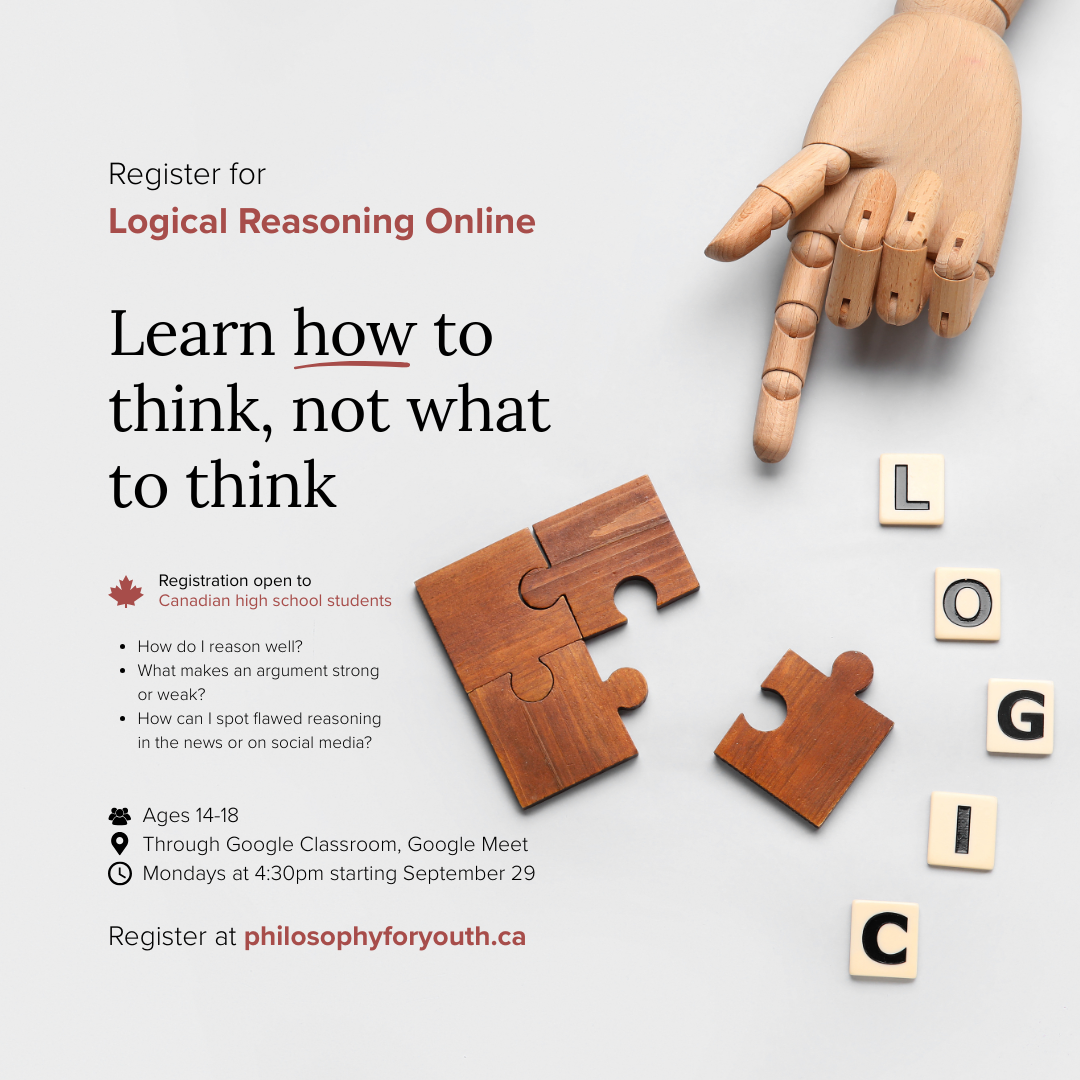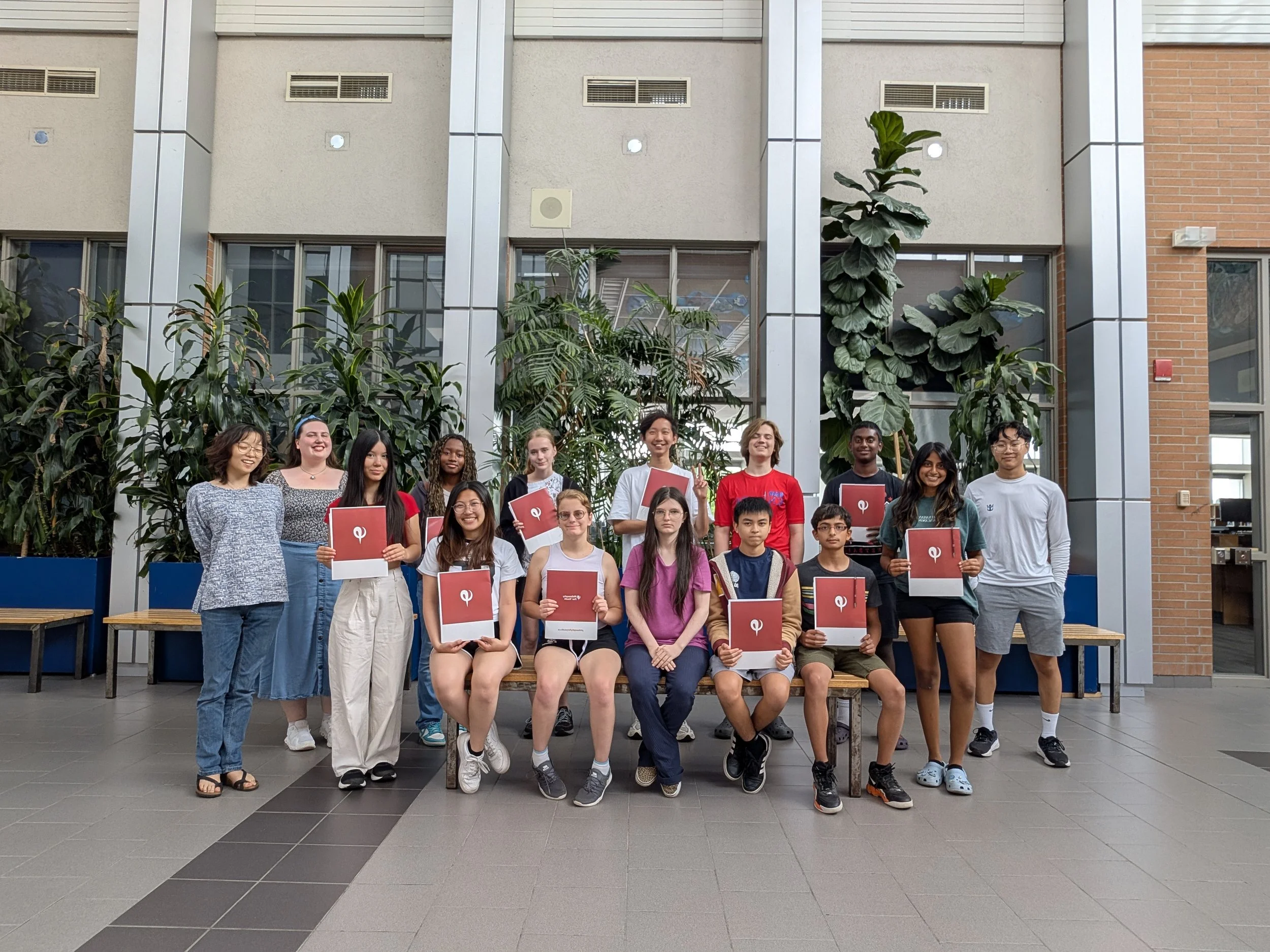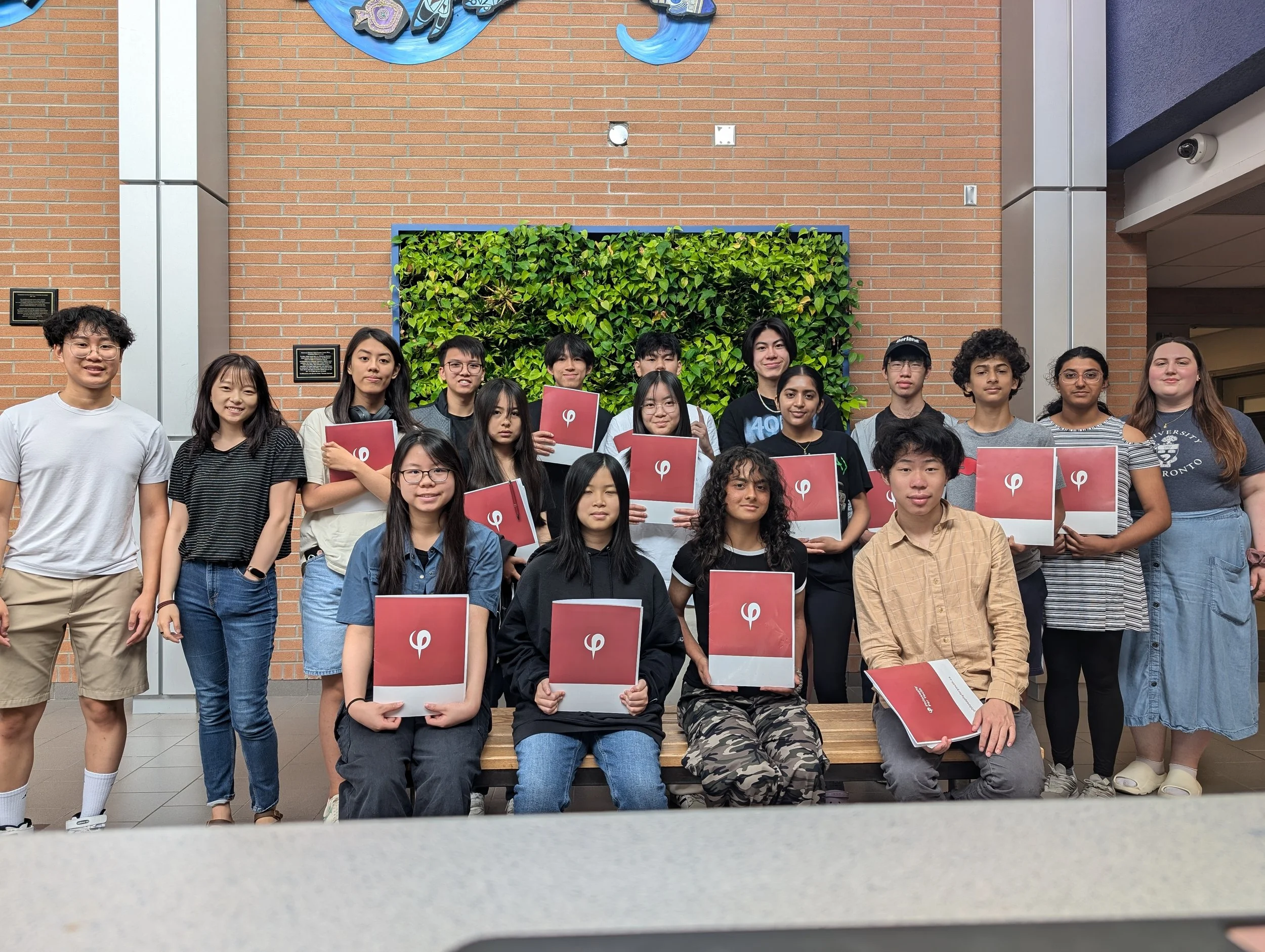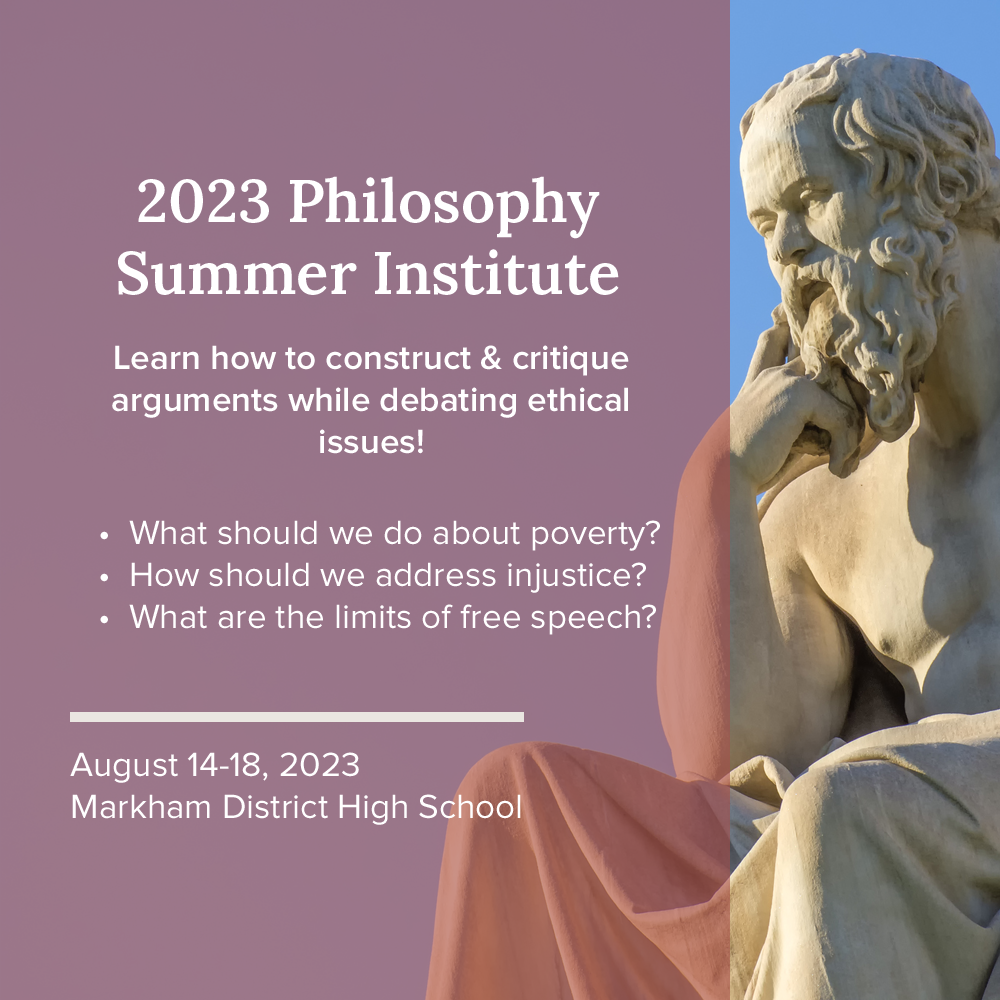Upcoming Programs
Logical Reasoning Online
Logical Reasoning Online is a virtual program for students in grades 9–12 that builds students’ critical thinking skills through the study of logic and argument analysis.
Students will explore questions such as: What makes an argument strong or weak? How can I reason well? How can I spot flawed reasoning in the news or on social media? How can I construct good arguments on issues that matter to me?
Past Programs
2025 Philosophy Summer Academy
Sponsored by the American Philosophical Association, Philosophy Summer Academy is a program for students in grades 9-12 hosted at Markham District High School.
This year’s theme was Politics, Law, & Philosophy. Students considered questions such as: What justifies political power? What (if anything) justifies the market system? Are there some things that should not be for sale? How should goods be distributed?
2024 Philosophy Summer Academy
Sponsored by the American Philosophical Association, Philosophy Summer Academy is a program for students in grades 9-12 hosted at Markham District High School, where students learn to reason and debate topics related to philosophy, politics, and society.
2023 Philosophy Summer Institute
A week-long summer program for high school students, where students develop valuable, widely-applicable skills such as:
Constructing and presenting well-reasoned arguments
Engaging in logical reasoning to analyze the strength of an argument
Communicating clearly and concisely to persuade others
…all while discussing and learning about philosophy!




